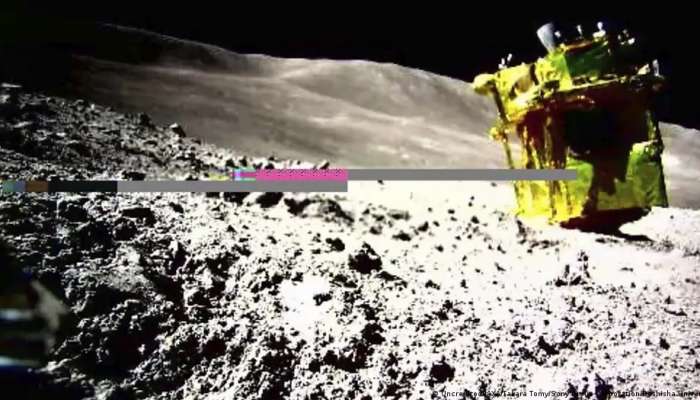
Tokyo: The Japan Aerospace Exploration Agency (JAXA) said on Monday that its moon lander has resumed operations after regaining power.
The probe Smart Lander for Investigating Moon (SLIM) landed on the lunar surface on January 20, but its solar panels were not able to generate electricity because they were facing the wrong direction.
So JAXA switched the craft off with 12% of power left to allow for a possible recovery when the sun's angle changed.
The probe was now likely able to generate power thanks to a change in the sunlight's direction, the space agency said.
"Last evening we succeeded in establishing communication with SLIM and resumed operations. We immediately started scientific observations with MBC, and have successfully obtained first light for 10-band observation," JAXA said on social media platform X, formerly Twitter, referring to the lander's multiband spectroscopic camera.
The agency also posted an image shot by the SLIM of "toy poodle," a rock observed near the lander.
With the mission, Japan became the fifth nation to achieve a soft lunar landing, after the US, the Soviet Union, China and India.
SLIM achieved an unprecedented "pinpoint" landing within 100 meters (about 330 feet) of its target near the lunar equator, the agency said.
JAXA said the craft's landing technology could allow moon missions to land "where we want to, rather than where it is easy to land."
SLIM could be a powerful tool for the future exploration of the hilly poles of the moon. Those areas are potential source of resources necessary to sustain life — water, oxygen, and possible fuel.
A number of countries, from Russia and China to South Korea and the UAE, are trying to reach the moon.
Last August, India managed to land its Chandrayaan-3 probe near the moon's south pole, marking a historic touchdown. The country has announced plans to set up a space station by 2040.
The SLIM mission came after several lunar landing attempts by Japan failed, including last year when it sent a probe called Omotenashi as part of the US Artemis program.
Omotenashi would have been the world's smallest moon lander, but it lost contact.
In April, a Japanese start-up called ispace failed in an ambitious attempt to become the first private company to land on the moon.